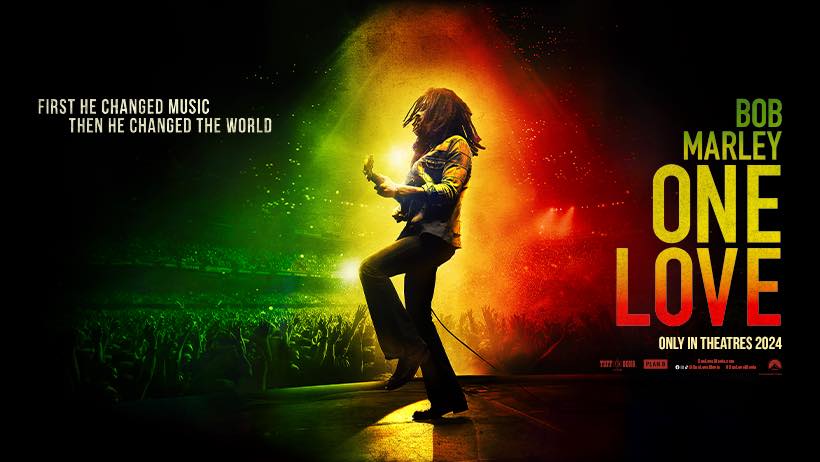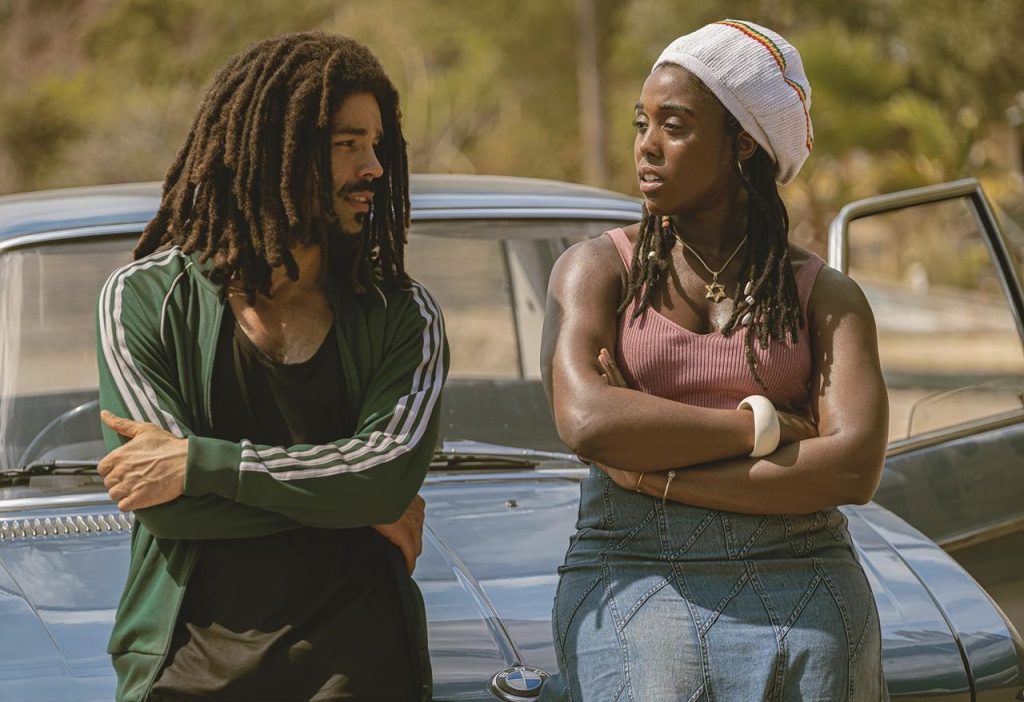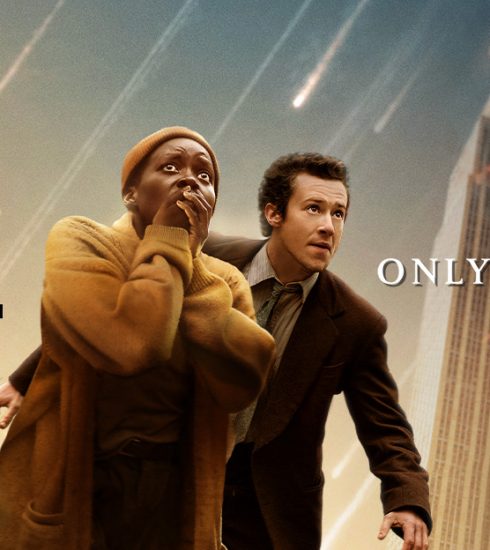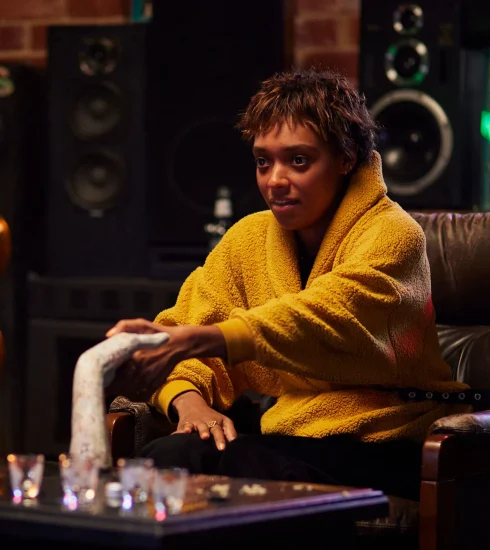Movie Review: Bob Marley: One Love
In a post-Bohemian Rhapsody world, no one expects any sort of critical eye from big-screen music movies, but Bob Marley: One Love is polite to the point of banality. The doting biopic depicts several years in the life of Bob Marley but doesn’t manage to say a single thing about the man other than he seemed like a pretty cool guy to be around.
Made in conjunction with the Marley estate — Marley’s son Ziggy, his widow Rita, and his daughter Cedella are producers on the project — One Love does feature wall-to-wall music by the reggae legend, so at least it has that going for it. But it’s a soundtrack in search of a film.

When One Love opens, Marley is already a superstar, so the filmmakers manage to sidestep all that messy getting-to-know-you business or learning about what really made him tick. It’s 1976, and Marley — played by Kingsley Ben-Adir, is getting ready to headline a concert for peace in Jamaica, as warring political parties have the island country on the brink of civil war. Tensions are high, but Marley insists on not backing down, even as he becomes a target for assassination and his wife (Lashana Lynch) is shot in the head by an assailant. (She lives.)
The buildup to the concert is presented as the narrative drive to the film, but the concert comes and goes, and then it’s off to London as Marley works on 1977’s Exodus album. And it’s here where we get loads of hang time in the studio with Bob, as he and his bandmates record, vibe together, and brush off clueless label executives, who are always an easy target in these kinds of movies.
Marley wants to create, he wants to inspire, he wants to tour Africa. But there’s no infrastructure there, he’s told. “We can build it!” he offers. And so on: One Love doesn’t have any real insight into its subject, instead offering adulation and worship. He records, he performs, he fights through a cancer diagnosis. He keeps going, for his people, for symbolism.

One Love is directed by King Richard’s Reinaldo Marcus Green, who also co-wrote the screenplay with three others. It’s fueled by Marley’s music — No Woman No Cry, I Shot the Sheriff, Get Up, Stand Up, etc. — and there’s one of those montages that shows his music racing up the charts, a music biopic staple.
When it’s time to show his faults — an argument with his wife, a violent backstage attack on his tour manager — it treats them as blips on the radar, nothing a haze of smoke can’t fix.
Ben-Adir’s performance is strictly surface level, but the role as written doesn’t require much other than looking stylish, nodding his head and occasionally mentioning Rastafari. Adidas is given so much screen time it is practically a presenting sponsor.

This image released by Paramount Pictures shows Kingsley Ben-Adir, left, and Lashana Lynch in “Bob Marley: One Love.” (Chiabella James/Paramount Pictures via AP)
There’s a nice moment late in the movie when Marley is singing Redemption Song around a campfire at home, one of the few organic-feeling music moments in the film. When did he write that one? His wife asks him, “My whole life,” Marley replies. That’s how One Love goes: It treats its subject as a mystic power, untethered from the ground, floating above the fray. It sees him as a myth, not a man.
Boluwatife Adesina is a media writer and the helmer of the Downtown Review page. He’s probably in a cinema near you.





